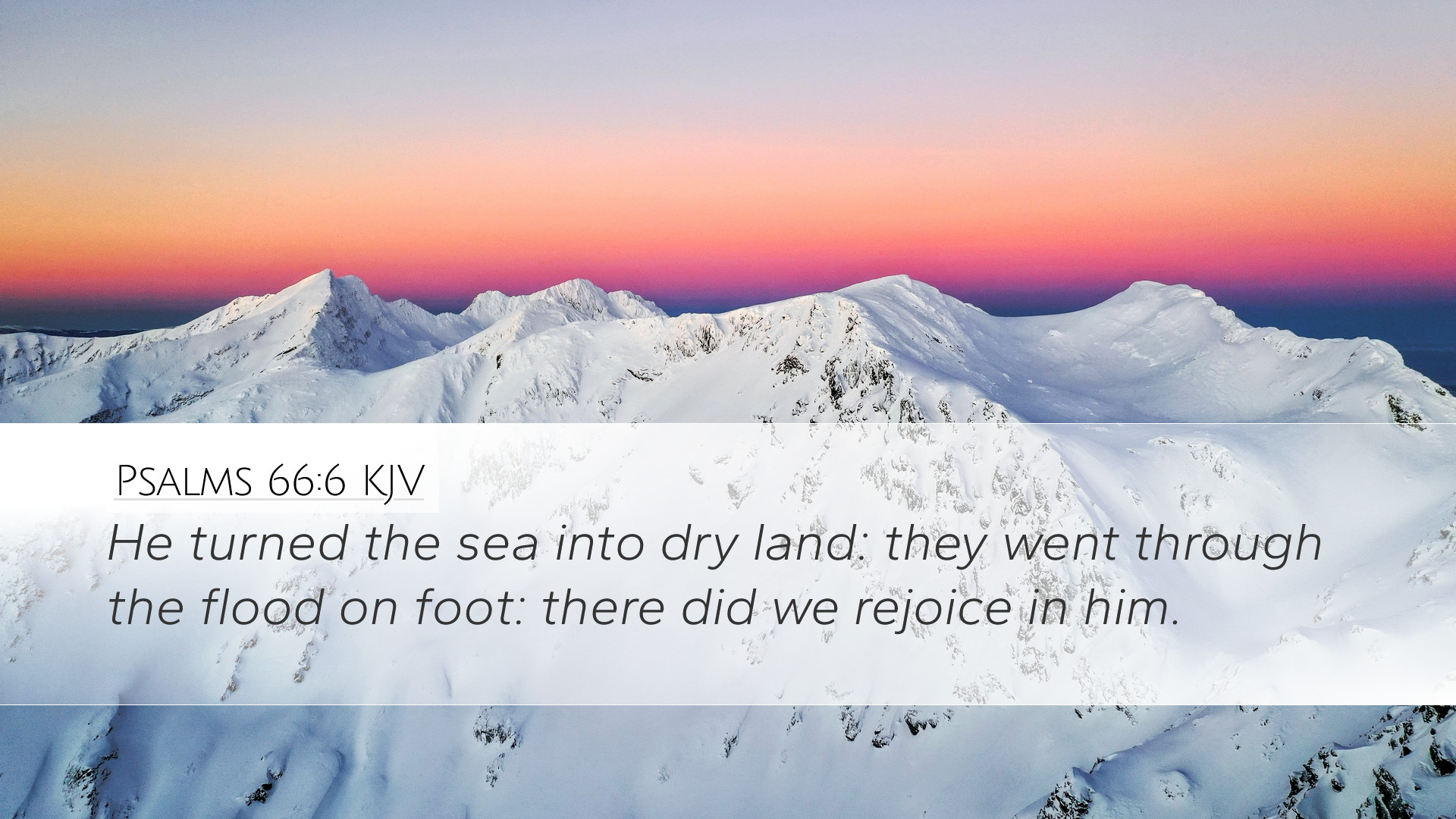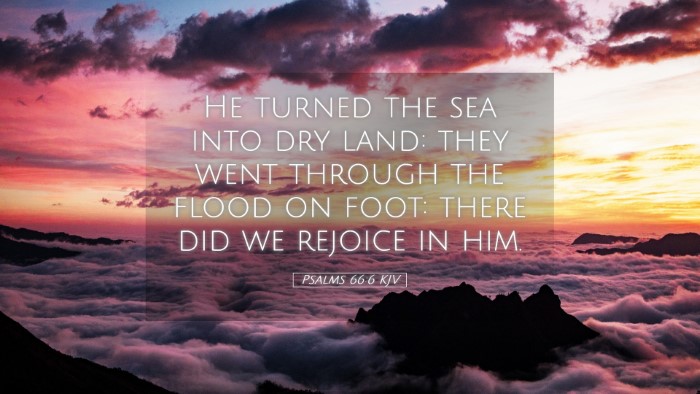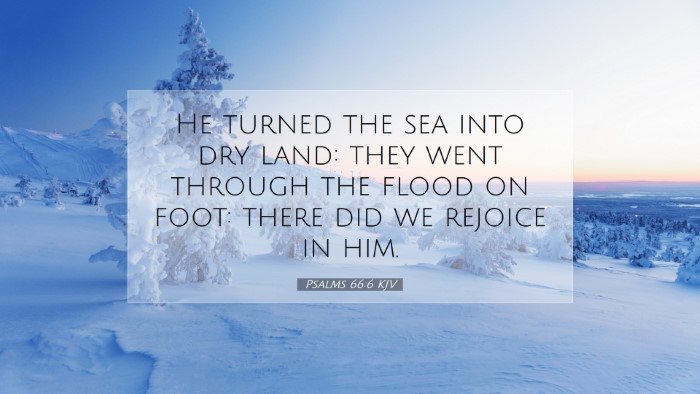Psalms 66:6 Commentary
Bible Verse: "He turned the sea into dry land; they went through the flood on foot: there did we rejoice in him."
Introduction
This verse from Psalms 66 encapsulates a moment of profound thanksgiving and reflection on God's miraculous acts, particularly His deliverance of Israel from bondage and their passage through the Red Sea. In this commentary, we synthesize insights from classical public domain sources to draw out theological implications, historical context, and practical applications for modern readers.
Thematic Overview
The central themes in this verse include:
- Divine Deliverance: The transformation of the sea into dry land speaks to the power of God to save His people.
- Faith and Obedience: The act of walking through the sea signifies trust in God, even in seemingly impossible circumstances.
- Joyful Worship: The rejoicing of the people underscores the importance of remembering God's mercies.
Exegesis of the Text
Albert Barnes notes that this verse is a vivid reminder of the Exodus narrative where the sea was parted, allowing Israel to escape from Pharaoh's grasp. The phrase "turned the sea into dry land" not only illustrates God's miraculous provision but also serves as a metaphor for the spiritual deliverance He provides to believers today.
Matthew Henry elaborates on the joy that the Israelites experienced after crossing the sea. He emphasizes that this joy was not merely in their physical salvation but in their relationship with God. They recognized that their deliverance was a result of His covenant faithfulness, leading them to rejoice in His presence.
Adam Clarke further adds that the "flood" represents the challenges and adversities faced in life, and walking "on foot" implies that faith often requires active engagement and perseverance. The act of moving forward in faith is a necessary response to God's saving work.
Theological Insights
Divine Sovereignty
The verse illustrates God's sovereignty over nature. By turning "the sea into dry land," it is evident that creation obeys its Creator. This serves as a reminder to contemporary readers that God remains in control of the natural order and is able to intervene in human history.
Faith in Action
Thepsalmist reflects on an act of faith that requires stepping into the unknown. Henry suggests that this act of walking through the sea symbolizes the believer's journey through trials and challenges with faith. This encouragement to trust God, even when circumstances appear daunting, is a critical takeaway for believers navigating life's adversities.
Rejoicing in God’s Works
The rejoicing that follows the miraculous events signifies the connector between salvation and worship. Barnes emphasizes the importance of recognizing God’s past works as a foundation for present praise. Celebrating God's interventions strengthens communal and individual faith.
Historical Context
This psalm is believed to have been written post-Exodus during a time when Israel was establishing itself as a nation under God’s guidance. Recognizing their past deliverance served as a foundational narrative for their identity as God’s chosen people.
Commentators agree that historical remembrance plays a crucial role in the psalmist's message. The act of recalling God's might in past events provided the Israelites with confidence in future challenges.
Application for Contemporary Believers
Encouragement in Trials
This verse can offer significant encouragement to believers today. Just as the Israelites experienced divine deliverance, Christians are reminded that God is present in their struggles. Faith in God's sovereignty can empower individuals to face their own 'seas' with courage and assurance.
Living in Community
Moreover, this passage calls for a communal understanding of God’s works. Celebrating testimonies of His faithfulness can unite congregations in worship and encouraging moments of remembrance of God’s goodness. Both Henry and Clarke stress the need for community togetherness in reflecting on past mercies.
Worship as a Response
In response to recognizing God's works, worship becomes an act of thanksgiving and proclamation. Believers today are invited to sing praises and share their experiences of joy in the Lord, just as the Israelites did after crossing the sea.
Conclusion
Psalms 66:6 serves not only as a historical account but also as a timeless reminder of God’s power to save and the appropriate response of His people: joyful worship. Through understanding the richness and depth of this passage, pastors, students, and scholars can glean insights that encourage a vibrant faith rooted in the acknowledgment of God’s past deliverances.


